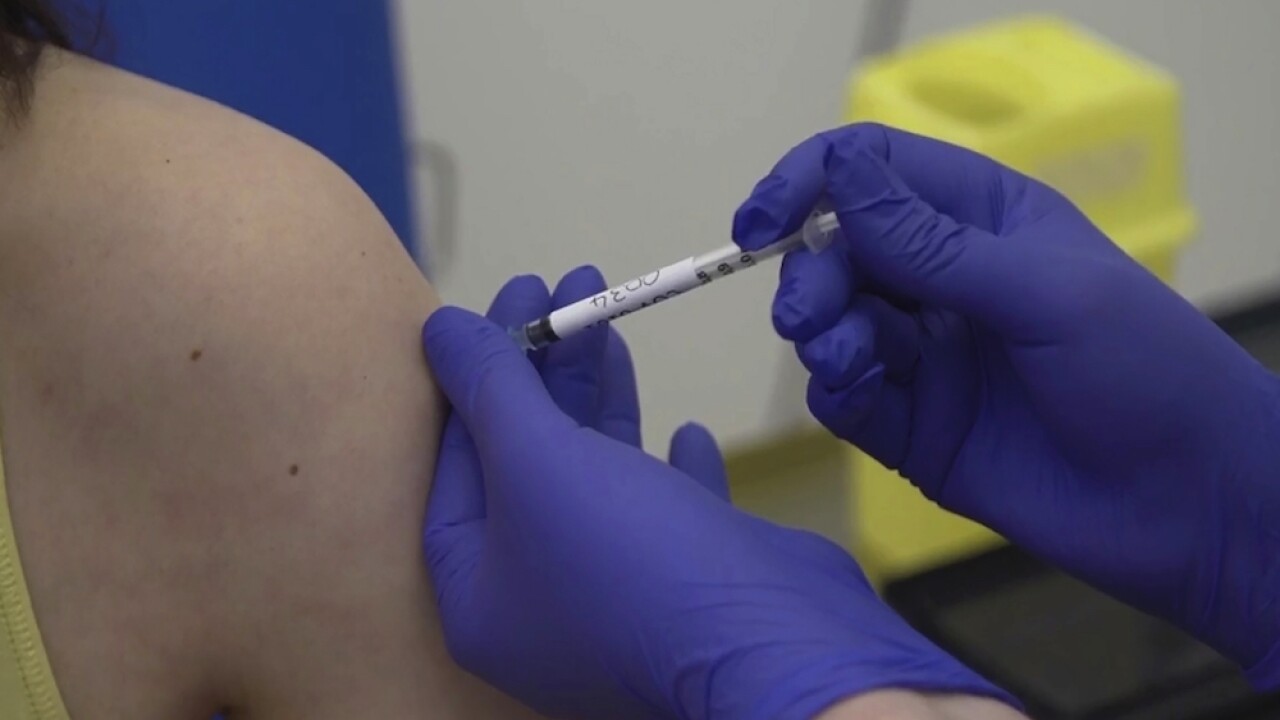LOS ANGELES (CNS) - While some hospitals in other parts of the nation face pushback from employees over mandatory COVID-19 vaccination policies, hospitals in Los Angeles and Orange counties have largely avoided the issue, with hospital representatives telling City News Service they aren't requiring workers to get the vaccine.
The uproar from some hospital employees gained national attention this week, when the Houston Methodist hospital system in Texas suspended 178 workers for failing to meet a Monday deadline to receive a COVID-19 vaccine.
The hospital's mandatory vaccine policy has prompted more than 100 employees to file a lawsuit, challenging the ability to mandate vaccines that are only authorized for emergency use and are technically considered "experimental."
The suspended employees were given until June 21 to be vaccinated, or face being fired.
Officials from various hospitals in Los Angeles and Orange counties told CNS they have not instituted any mandatory vaccine policies -- although they urge everybody to get a jab.
"Vaccinations are encouraged but not required at this time," said Jennifer Bayer, communications manager for Tenet Healthcare, which has facilities in Los Angeles and Orange counties.
Patrick Moody, director of marketing and public relations for Henry Mayo Newhall Hospital, said employees were not required to be inoculated against COVID-19, "although we strongly encourage everyone to get vaccinated."
Los Angeles County+USC Medical Center also does not require COVID-19 vaccines for employees.
"Currently, Los Angeles County Health Services does not require our staff to be vaccinated against COVID-19," according to spokeswoman Connie Castro. "Any future decisions relating to a COVID-19 vaccination mandate would be agreed upon with Health Services' labor partners."
At Keck Hospital of USC, all employees were required to submit proof of COVID-19 vaccination or a personal declination by June 1, said Keck Medicine of USC spokeswoman Meg Aldrich.
However, "declination is not subject to termination," she said.
Jeff Corless of KPC Health, which provides health care services at Anaheim Global Medical Center and facilities in Orange County, Riverside and elsewhere, said the system encourages but does not require employee vaccinations.
The University of California system is developing a new COVID-19 vaccination policy, said John Murray of UC Irvine Medical Center.
"UCLA Health believes receiving the vaccine is an important step in protecting oneself and others while helping to end the pandemic," UCLA Health spokesman Phil Hampton said in an emailed statement.
"Consistent with University of California policy, UCLA Health encourages but does not require employees to be vaccinated against COVID-19."
An April 22 letter from the office of UC President Dr. Michael V. Drake shared details of the proposed policy, including a requirement that all students, faculty, academic appointees and staff who are accessing campus facilities at any UC location -- beginning this fall -- must be immunized.
But the requirement would not go into effect until a vaccine has full approval from the U.S. Food and Drug Administration, the letter states.
If the proposed policy is adopted as drafted, employees who choose not to be immunized and who do not receive an approved medical exemption or religious belief exception "may be limited in accessing UC facilities," according to Heather Harper, a spokeswoman for the UC Office of the President.
"We have seen strong interest in receiving a COVID-19 vaccine from people across California and the nation," Harper said in a statement.
"We believe this demand will continue and most people will make the decision to be vaccinated against a virus that can cause serious disease and has killed more than half a million people in the United States alone."
Some hospitals in other parts of the nation are instituting mandatory vaccination policies, including a series of health systems in Maryland and Washington, D.C., and select hospitals in Pennsylvania and Indiana.

